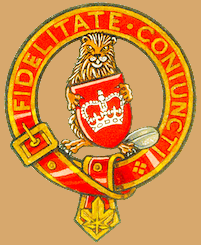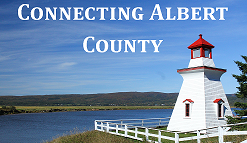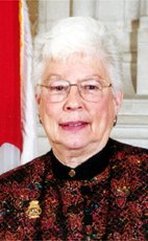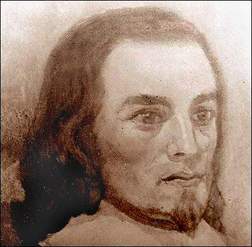
In 1627 some London merchants formed a company with the intent to trade and found settlements along the St. Lawrence River. When war broke out later that same year between England and France (as tended to happen in those days) the company financed an expedition to the New World under Kirke in order to drive out the French. Accompanied by his brothers he set out with three ships. The campaign went well with a quick capture of Tadoussac as well as a supply ship headed for Quebec. Kirke had surrender conditions delivered to Champlain (then in charge of the outpost). Champlain, confident in the settlement's defences and expecting supplies from France, refused to surrender. Kirke for his part decided not to attack the well-armed outpost. However, Champlain just couldn't catch a break. The French supply ships were captured by the English and Champlain was eventually forced to come to terms.
A small wrinkle in all this was that peace had been declared in April and Quebec captured in July. It would be several years of negotiation before the French colony was returned in 1632. In 1633 for his service to his king (and perhaps as compensation for having to give Quebec back) Kirke was knighted.
In 1637 he was made co-proprietor of Newfoundland along with the Marquis of Hamilton and the earls of Pembroke and Holland. He would become Governor of the island in 1639. He was given a grant of arms that in the intervening period would fall into obscurity only to re-emerge later and be adopted as Newfoundland's coat of arms. He had an unenviable position as governor as he had to contend with a foreign fishery that did not want local settlement on the island. Nevertheless he brought about 100 colonists to the settlement of Ferryland where he also erected fortifications.
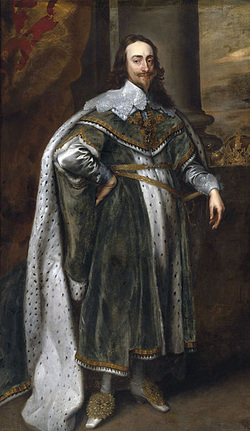 King Charles I
King Charles I Sir David was recalled to England where he died of natural causes but his family would remain at the Ferryland settlement for some time. It would take a raid on the settlement in 1673 and another in 1696 to finally dislodge the Kirkes from Newfoundland.
It is interesting to speculate on what might have been had King Charles made his escape to Newfoundland. It is unlikely Parliament would have recalled a man they had just fought a bitter war with. It is indeed possible that the centre of of what was at the time still a modest empire would have shifted to Canadian shores.
Regardless, Sir David Kirke showed loyal service to his king and the fledgling colony of Newfoundland.
Loyally Yours,
A Kisaragi Colour
 RSS Feed
RSS Feed
